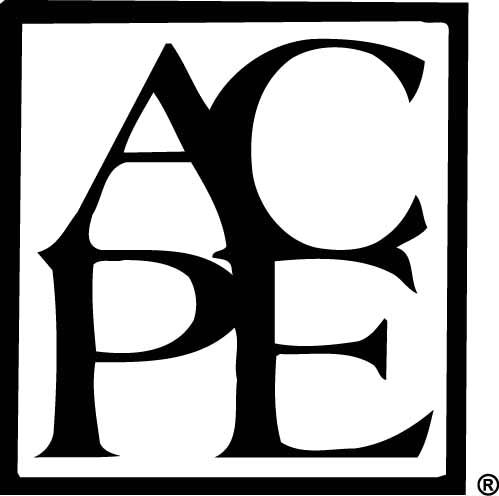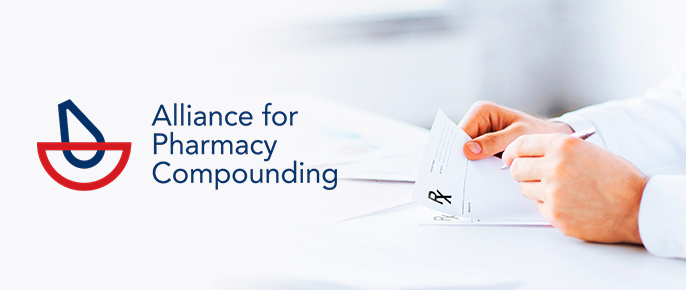Keeping it Legit: Best Authentication Practices for Compounders - Providers and Prescriptions (PFM On-demand)
Brought to you in partnership with the Alliance for Pharmacy Compounding
Please note that this is the on-demand version of the webinar for APC Pharmacy/Facility Members.
The live webinar was recorded on September 22nd, 2022.
Overview
In a 2020 survey of individuals aged 12 or older in the United States, 5–16 million reported misusing prescription drugs, including psychotherapeutics, stimulants, tranquilizers/sedatives, benzodiazepines, and pain relievers (NIDA, 2020). Increased prescription drug misuse over the last 15 years has led to a rise in prescription drug use disorders (e.g. addiction) and overdose deaths, with significant strains placed on the healthcare system (NIDA, 2020).
While the pharmacist and prescriber each have a responsibility to ensure legitimate drug prescribing and dispensing, oversights in this shared obligation have played a role in prescription drug misuse. As the last line of defense in prescribing and dispensing, how can pharmacists help to keep it all legit?
This program aims to describe optimal approaches to validating legitimate prescriptions by exploring interactions with the prescriber such as verifying a valid doctor–patient relationship, prescriptions that are within their scope of practice, treatments that are individualized, among others. This activity will also explore controlled substance prescriptions, with a focus on a “Red Flags” Checklist for pharmacies to facilitate professional judgment on the legitimacy of such a prescription.
National Institute on Drug Abuse (NIDA), NIH, & US Department of Health and Human Services. June 2020. Misuse of Prescription Drugs Research Report. Available online.
Intended audience
- Pharmacists & Pharmacy Technicians
Learning Objectives
Pharmacists
- Recall the scope of prescription drug misuse and the classes of prescription drugs commonly misused.
- Recognize the responsibilities of the prescriber and pharmacist in ensuring the legitimacy of drug prescriptions.
- Apply optimal authentication practices involving providers and prescriptions to facilitate professional judgment on the accuracy and authenticity of prescription drug orders.
- Identify key “Red Flags” that contribute to the non-therapeutic dispensing of controlled substances.
Pharmacy Technicians
- Recognize the impact of prescription drug misuse and prescription drugs commonly misused.
- Explain the roles of the prescriber and pharmacist in helping to prevent prescription drug misuse.
- Explore best authentication practices that can facilitate the legitimacy of drug prescriptions.
- Identify “Red Flags” for non-therapeutic dispensing of controlled substances.
Hardware/software requirements
| Web browser | Google Chrome (most recent 2 versions) Mozilla Firefox (most recent 2 versions) Internet Explorer v11 Apple Safari (most recent 2 versions) Microsoft Edge (most recent 2 versions) |
Internet connection | Computer: 1 Mbps or better (broadband recommended) Mobile device: 3G or better (WiFi recommended) |
Software | No additional software needed |
Hardware | 2GB of RAM (minimum), 4GB or more of RAM (recommended) |
COPYRIGHT
This webinar is Copyright © Alliance for Pharmacy Compounding 2022.
| Kathy A. Salinas, PharmD |  |
Kathy Anderson Salinas joined TSBP as a Compliance Officer for the Houston area in 2014. She received her B.S. in pharmacy from the University of Texas at Austin. Her extensive knowledge of pharmacy practice and regulatory changes, allow her to educate licensees during inspections. Kathy has a special interest in the corresponding responsibility of pharmacists.
When she is not working, she is cheering on her daughter’s college equestrian team or spending time with her husband and dogs (and is always happy to share pictures).
PHARMACISTS & PHARMACY TECHNICIANS
This CE Activity is accredited for Pharmacists and Pharmacy Technicians by the Accreditation Council for Pharmacy Education (ACPE) through CPE Consultants, LLC.
Total CPE Credits: 1 CPE Hour = 0.1 CEUs
| Type | Knowledge-based |
| UAN | 0864-9999-22-051-H07-P/T |
| Credits | 1 CPE Hour = 0.1 CEUs |
| Release Date | September 22, 2022 |
| Expiration Date | September 22, 2025 |
COMPLETION REQUIREMENTS
- View the recorded webinar in full.
- Pay the credit reporting fee of $10.00 USD.
- Complete a learning assessment (minimum 80% passing grade, two attempts permitted) within 60 days.
- Submit a completed live event evaluation form online within 60 days.
When the aforementioned steps have been completed and approved:
- Pharmacists and Pharmacy Technicians registered in the United States will obtain a statement of completed credits on their NABP e-Profile within 60 days.
- Pharmacists and Pharmacy Technicians registered elsewhere will receive an automated email from LP3 Network advising that they can download a statement of participation.
- All participants will receive an automated email from LP3 Network advising that they can download the LP3 Network certificate of completion.
 | CPE Consultants, LLC is accredited by the Accreditation Council for Pharmacy Education as a provider of continuing pharmacy education. |
International participants should verify with their respective governing board for accreditation equivalency.
Please note: You can enroll in the course for free using the access code you were provided with, to get access to the slides and recording. The credit reporting fee of $10.00 USD only needs to be paid if you intend to claim credits. Upon payment, you will get access to the learning assessment and evaluation form, which must be completed to receive credits.
CANCELLATION AND REFUND POLICY
There are no refunds, returns or transfers upon payment of the credit reporting fee.

 Facebook
Facebook X
X LinkedIn
LinkedIn Forward
Forward